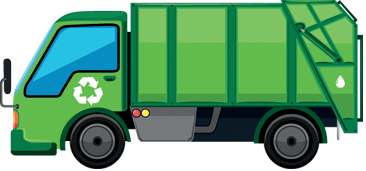Making rubbish is every human’s job, although not willingly humans create rubbish, even when they don’t realise it people create waste which brings the need for continuous rubbish removal and disposal.
 These days, big part of rubbish removal and disposal has to do with recycling and reuse. Problem is that still, not too many of the materials and items used on a daily basis can be effectively recycled or reused.
These days, big part of rubbish removal and disposal has to do with recycling and reuse. Problem is that still, not too many of the materials and items used on a daily basis can be effectively recycled or reused.
Here is a good example of how recycling soft drink cans saves energy: Usually soft drink cans are made of aluminium-like alloys (aluminium is too expensive to use on its own). These metal alloys are valuable and suitable for many other uses apart from making cans. To put things in perspective –recycling a single can of soft drink saves the same amount of energy as could be created by half of that can full of petrol. One international soft drink giant says they sell about one point seven billion cans of soft drink each day worldwide. If each of these cans were recycled, this would save the energy equivalent created by over three hundred million litres petrol – a staggering figure indeed. This is enough energy to drive around Australia more than two hundred and thirty thousand times in a non-fuel efficient vehicle.
Most of the time, rubbish removal practices in large cities are quite decent. Problem is however, that people throw out items and materials which have been wasted not used, depleted or exhausted. Take for example a metropolis like Sydney. Home to nearly five million people, rubbish removal in the city is second to none but it turns out that people are the one doing the wasting – exactly a decade ago, in two thousand four, it was estimated that each Sydney household wastes over twelve hundred dollars in tossed out goods per year. In total this adds up to two and a half billion of wasted dollars literally, and that’s in twenty o four alone. Most of the waste was food – guess the ‘starving kids in Africa’ pep talk isn’t working.
Rubbish removal and disposal in large cities suffers greatly from plastic bags. These handy everyday items are an unbelievable nuisance to collect, dispose and recycle. Australians use nearly four billion plastic bags every year. Although made of non-renewable materials, plastic bags are recyclable which is somewhat of a comforting thought. As everyone knows, plastic bags are made using crude oil derivatives like petroleum, and now the facts – the petroleum contained in nine plastic bags is enough to power a car for one kilometre. If Australians used the amount of petrol contained in four billion plastic bags for their vehicles, they could travel an extra four hundred and fifty million kilometres. Travelling four hundred and fifty million kilometres would mean crossing the Australian continent more than one hundred and twelve thousand times.
Now you see there is more to rubbish removal and disposal than meets the eye. Consume responsibly, try not to waste and spare a thought for future generations.

